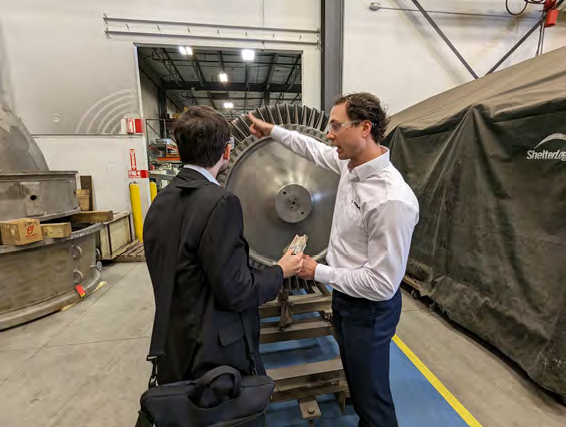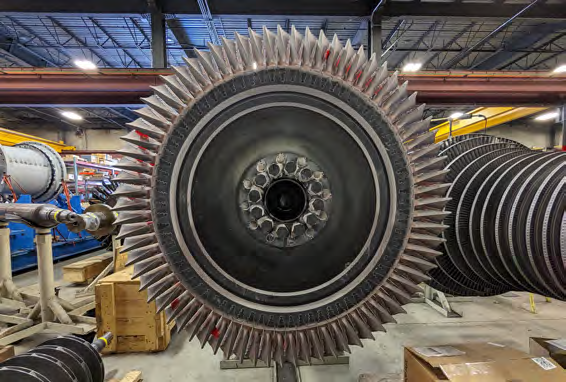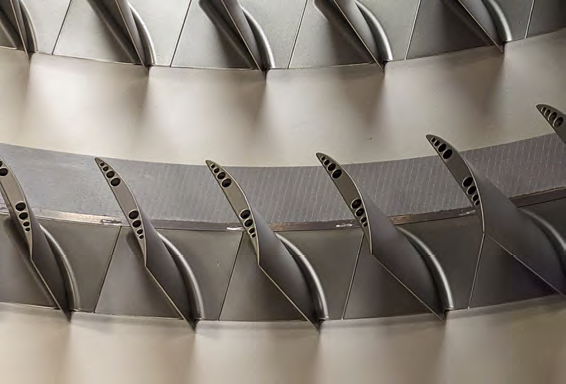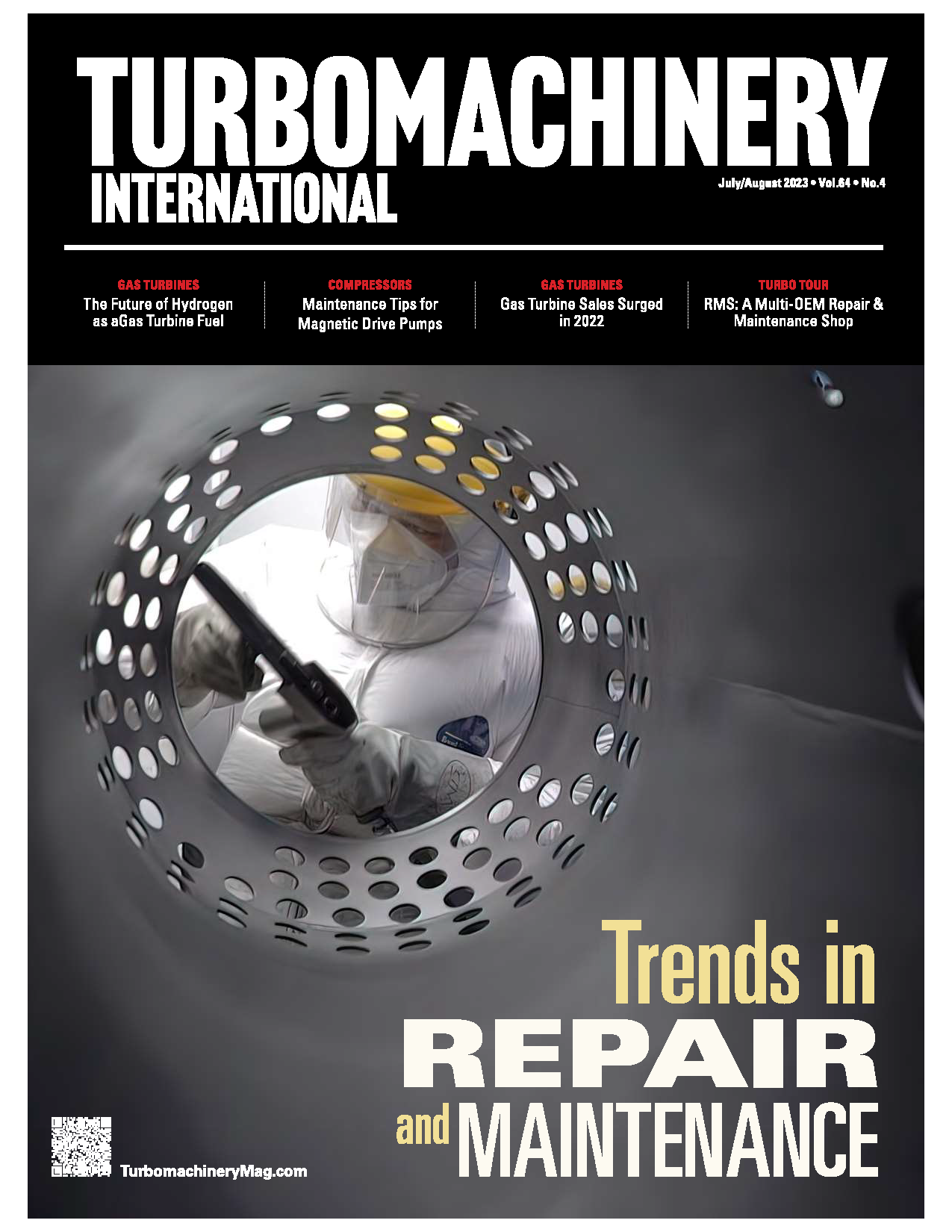Turbo Tour: RMS: A Multi-OEM Repair & Maintenance Shop
Rotating Machinery Services’ shop in Pennsylvania is home to 30,000 square feet of turbomachinery repair and maintenance space.
Steeped in a rich history of steelmaking, Bethlehem, PA, is home to Rotating Machinery Services’ (RMS) 30,000 square-foot facility with 25-ton crane capacity. Turbomachinery International visited its repair and maintenance (R&M) shop in May 2023, which handles machinery turnaround, overhauls, rerates, remaining life estimations, and failure and performance assessments. Opening in 1998, the Pennsylvania location features a machinery assembly bay, dynamic balancing, blasting booth, machining shop, tungsten inert gas (TIG) welding up to 250 amps, and OEM technical support.
“A significant amount of business comes from the AC compressor line since we are the OEM,” said Joe Gross, VP and General Manager. “However, most of the machines we service were originally built by other manufacturers.”
Entering the shop floor, a neatly arranged collection of multi-OEM equipment is on display, including some from Ingersoll Rand and Elliott. “All turbomachinery operating in such harsh environments will end up with this kind of wear and tear after about 5-6 years,” said James Wieder, General Manager of Manufacturing. At any given time, there are dozens of compressors and expanders on the shop floor.
A key element of RMS is its labor division, which largely aligns its equipment with its engineers and personnel. The Bethlehem shop is home to roughly 20% of RMS’ 350 overall employees who provide guidance on proper machinery operation and maintenance, review operational data from various sites, and suggests future repairs and upgrades. The Bethlehem facility primarily houses its expander and axial compressor product lines. Other products from RMS’s portfolio, such as steam turbines, power turbines, and centrifugal compressors, are also present.
Manufacturing Manager James Wieder highlighted the importance of blade coatings in the FCC expander refitting process.

Virtual learning is another component to its labor force—it incorporates solid models of equipment captured through digital scanning. This method can accelerate learning by pairing realistic 3D models with the knowledge of product experts. “We are creating a more visual way of working so that customers can interact with a realistic 3D simulation of the intricate details associated with overhauling a complex turbomachine,” said Dirk Paraschos, VP.
Its second facility in South Houston, TX, MEPCO, handles the majority of its centrifugal compressors, oil-free screw compressors, and AC equipment, usually overhung-type compressors. Depending on the type of equipment that needs to be serviced, one facility may be preferred over another due to its workshop capabilities. RMS also has a 100,000 square-foot machining center on the northside of Houston along with a 45,000 square-foot specialized rotating equipment shop in Pearland, TX. This combination of locations allows RMS to efficiently manage customer needs with specialized locations.
A well-worn FCC expander rotor on the RMS shop floor.

The RMS Bethlehem facility’s ready-for-finishing section handles the meticulous process of inspecting, bringing-back-to-life, and analysis of compressors. “One of the techniques we use on a lot of rotors and stators is applying a hard coating on many of the surfaces,” Wieder said. “This allows for an extension of the equipment’s life, providing an erosion-resistant surface to preserve the blade underneath. The end customer can potentially reuse the blades in the future.” He explained that RMS brings the blades in for inspection, strips them of the existing coating, ensures they are still in good condition, and recodes and reinstalls them.
“Our refurbishment process is capable of extending the usage life of these components by one or two maintenance cycles,” he said.
Strategically drilled holes in active compressor components, such as the blades or stators, can provide an increase in frequency stability.

These blades, as well as stators, feature holes on the sides, which, according to Weider, mitigate the risk of blade failure. “By drilling into the tips of the stators and blades, it reduces the blade’s weight and frequency. We then conduct live testing pre-production and final production to confirm they are not in failure mode.” The way RMS approaches frequency analysis and blade balancing methods is rare in the R&M industry.
By providing this level of extended support, the quality of customer outcomes can be improved.
